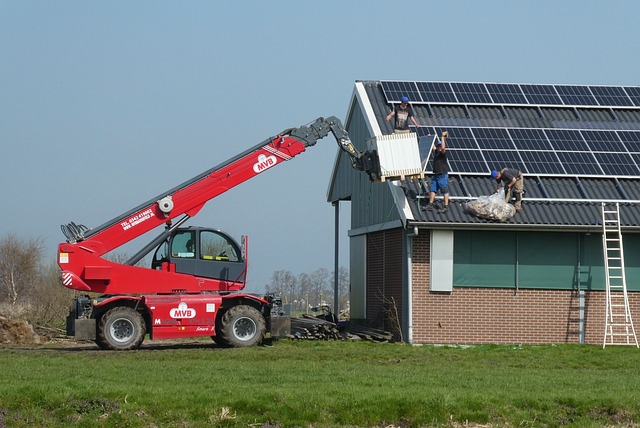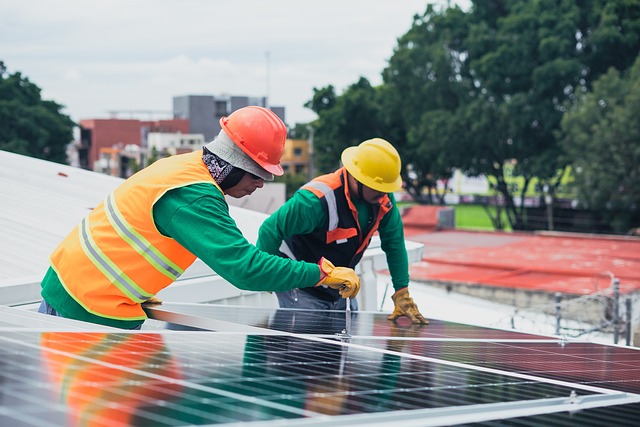Key Takeaways: How to Choose a Solar Installer to Finance B2b
- Evaluate Experience and Expertise
- Choose installers with extensive commercial project experience.
- Assess the technical knowledge and qualifications of the installation team.
- Review case studies and client references to gauge past performance.
- Assess Financial Stability and Offerings
- Investigate the financial health of the installer through credit ratings, financial statements, and company longevity.
- Explore various financing options such as direct purchase, leases, PPAs, and loans.
- Ensure the installer can navigate and secure federal, state, and local incentives and rebates.
- Conduct a thorough ROI analysis to understand the payback period and long-term savings.
- Check Certifications and Accreditations
- Verify NABCEP certification and other relevant accreditations.
- Confirm the installer holds all necessary local licenses and permits.
- Prefer installers certified by equipment manufacturers for added quality assurance.
- Evaluate the Installation Process
- Ensure the installer conducts a comprehensive site assessment.
- Expect a customized system design tailored to your business’s energy needs.
- Discuss and agree on a realistic installation timeline to minimize disruptions.
- Review Warranties and Maintenance Services
- Look for robust equipment warranties, preferably 25 years or more.
- Consider installers offering performance guarantees.
- Ensure ongoing maintenance and support services are available.
- Analyze Cost and Value
- Compare quotes but focus on overall value rather than just the lowest price.
- Evaluate the total cost of ownership, including installation, maintenance, and energy savings.
- Choose installers who offer transparent pricing and clear contracts.
- Customer Service and Communication
- Assess the installer’s responsiveness and communication quality.
- Ensure strong post-installation support, including monitoring and maintenance.
- Review customer feedback and testimonials to gauge satisfaction levels.
By focusing on these key aspects, businesses can make informed decisions when choosing a solar installer to finance b2b, ensuring a successful and financially beneficial transition to solar energy.
As businesses increasingly turn to renewable energy sources to reduce operational costs and meet sustainability goals, solar power has emerged as a leading choice. However, the transition to solar energy involves significant investment and planning. Selecting the right solar installer is critical to ensuring a smooth, efficient, and financially sound transition. Here’s a comprehensive guide to help businesses choose solar installer to finance B2b.
7 Key Points How to Choose a Solar Installer to Finance B2b

#1. Evaluate Experience and Expertise of solar installer
Industry Experience
Look for installers with extensive experience in commercial solar projects. Experienced installers are more likely to have encountered and solved a variety of challenges, ensuring a smoother installation process.
Technical Expertise
Assess the technical expertise of the installation team. This includes knowledge of the latest solar technologies, inverters, battery storage systems, and grid integration.
Case Studies and References
Request case studies and references from past commercial clients. These provide insights into the installer’s track record and customer satisfaction.

#2. Assess Financial Stability and Offerings
Financial Health
Creditworthiness
A solar installer’s financial health is paramount. Start by examining their credit rating and financial reports, if available. A strong credit rating indicates that the company is reliable and can manage its finances effectively, reducing the risk of business disruption or insolvency.
Company Longevity
Investigate how long the company has been in business. Companies with a longer track record in the solar industry are often more stable and experienced. This longevity also suggests that they have successfully navigated industry challenges and market fluctuations.
Financial Statements
Request financial statements to get a clear picture of their financial health. Look at their balance sheet, income statement, and cash flow statement. Positive cash flow and profitability are good indicators of a financially sound company.
Financing Options
Direct Purchase
Some businesses prefer to purchase the solar system outright. This option typically offers the highest return on investment over the system’s lifetime, as the business owns the system and benefits directly from the energy savings and any applicable tax incentives.
Solar Leases
Leasing can be an attractive option for businesses that want to avoid the upfront costs of purchasing a solar system. Under a lease, the business pays a fixed monthly fee to use the solar system, which is typically lower than their previous utility bill. The leasing company remains the owner of the system, which can simplify maintenance and management.
Power Purchase Agreements (PPAs)
A commercial solar PPA involves an agreement between the business and the solar provider where the provider installs and maintains the solar system, and the business agrees to purchase the generated electricity at a predetermined rate, usually lower than the local utility rate., usually lower than the local utility rate. This option minimizes upfront costs and can provide immediate savings on energy bills.
Loans
Many installers offer loan programs either directly or through third-party financial institutions. Solar loans allow businesses to own their solar systems while spreading the cost over several years. These loans can be structured to match the anticipated energy savings, making them cash flow positive from day one.

Incentives and Rebates
Federal Incentives
The Federal Investment Tax Credit (ITC) is a significant incentive that allows businesses to deduct a portion of their solar installation costs from their federal taxes. As of 2024, the ITC provides a 26% tax credit, but the percentage is subject to change, so it’s important to act promptly.
State and Local Incentives
Each state and municipality may offer additional incentives, such as grants, rebates, and tax credits. A knowledgeable installer should be familiar with these programs and help you apply for them. For example, some states offer property tax exemptions for the added value of a solar system, or sales tax exemptions on the purchase of solar equipment.
Accelerated Depreciation
The Modified Accelerated Cost Recovery System (MACRS) allows businesses to recover investments in solar energy property through depreciation deductions. Bonus depreciation rules have allowed for the full cost of solar systems to be depreciated in the first year for eligible systems placed in service before the end of 2022, which can substantially reduce taxable income.
Return on Investment (ROI) Analysis
Payback Period
An important aspect of financial offerings understands the payback period. This is the time it takes for the savings from your solar system to cover the initial investment. A shorter payback period means quicker financial benefits.
Savings Projections
A reliable installer should provide detailed savings projections, showing how much you can expect to save on your energy bills over the system’s lifetime. These projections should account for potential increases in utility rates and maintenance costs.
Performance Monitoring
Ensure that the installer offers performance monitoring tools that allow you to track the system’s energy production and financial savings. This transparency helps in verifying that the system meets the expected performance and savings targets.
Financial Advisors and Consultants
Independent Financial Analysis
Consider hiring an independent financial advisor or consultant to review the financial aspects of the solar project. They can provide an unbiased assessment of the installer’s financial proposals and help you understand the long-term financial implications.
Customized Financial Plans
The best solar installers offer customized financial plans tailored to your specific business needs. This includes a detailed analysis of your energy usage patterns, financial health, and long-term goals to create a financing plan that maximizes benefits and minimizes risks.
By thoroughly assessing the financial stability and offerings of potential solar installers, you can ensure that your investment in solar energy is both financially sound and beneficial for your business in the long term. A well-chosen installer will not only deliver a high-quality solar system but also provide financial solutions that align with your business goals and sustainability objectives.
#3. Check Certifications and Accreditations
NABCEP Certification
The North American Board of Certified Energy Practitioners (NABCEP) certification is a key indicator of a qualified solar installer. This certification ensures that the installer adheres to industry best practices and standards.
Local Licenses and Permits
Ensure the installer has all necessary local licenses and permits. This compliance is crucial for legal and safety reasons.
Manufacturer Certifications
Installers certified by solar panel and equipment manufacturers often have access to better training and support, which can enhance the quality of the installation.
#4. Evaluate the Installation Process
Site Assessment
A thorough site assessment is critical. The installer should conduct a detailed analysis of your site’s solar potential, including roof condition, shading, and structural integrity.
Custom Design
The installer should offer a customized system design tailored to your business’s energy needs and site specifics. A one-size-fits-all approach is often less efficient and more costly in the long run.
Installation Timeline
Discuss the installation timeline. Reliable installers provide realistic timelines and stick to them, minimizing disruptions to your business operations.
#5. Review Warranties and Maintenance Services
Equipment Warranty
Examine the warranties on the solar panels, inverters, and other components. Look for long-term warranties (at least 25 years for panels) to ensure longevity and performance.
Performance Guarantee
Some installers offer performance guarantees that ensure your system will generate a specific amount of energy. This can provide additional financial security.
Maintenance and Support
Check if the installer offers ongoing maintenance and support services. Regular maintenance is essential for maximizing system performance and lifespan.
#6. Analyze Cost and Value to Choose a Solar Installer to Finance B2b
Competitive Pricing
While cost is a significant factor, it shouldn’t be the only one. Compare quotes from multiple installers, but also consider the value offered in terms of quality, service, and support.
Total Cost of Ownership
Evaluate the total cost of ownership, including installation, maintenance, and expected savings on energy bills. A higher initial investment might be justified by greater long-term savings.
Transparency
Choose an installer that provides transparent pricing and clear contracts. Avoid hidden fees and ensure you understand all aspects of the financial agreement.
#7.Customer Service and Communication
Responsiveness
Assess the installer’s responsiveness and willingness to answer questions. Good communication is key to a successful project.
Post-Installation Support
Ensure the installer offers robust post-installation support, including monitoring, troubleshooting, and maintenance services.
Customer Feedback
Look for customer feedback and reviews. Positive reviews and high customer satisfaction are strong indicators of a choosing a solar installer to finance b2b.
Question you may ask: How to Choose a Solar Installer for Your Business
1. Why is the experience of a solar installer important?
Experience indicates that the installer has successfully completed similar projects and can handle potential challenges effectively. It also often correlates with higher quality installations and better customer service.
2. How can I verify the financial stability of a solar installer?
Check their credit rating, request financial statements, and consider their company longevity. A financially stable installer is more likely to stay in business long-term, ensuring they can honor warranties and provide ongoing support.
3. What financing options are available for commercial solar installations?
Direct Purchase: Highest long-term savings but requires upfront capital.
Solar Leases: Fixed monthly payments with no upfront cost.
Power Purchase Agreements (PPAs): Pay for electricity generated at a lower rate than utility prices.
Loans: Spread the cost over time while retaining system ownership.
4. What incentives and rebates should I be aware of?
Federal Incentives: Investment Tax Credit (ITC) allows deduction of a percentage of the installation cost.
State and Local Incentives: Grants, rebates, tax credits, property tax exemptions, and sales tax exemptions vary by location.
Accelerated Depreciation: MACRS allows for rapid depreciation of solar investments, reducing taxable income.
5. What certifications and licenses should a reputable solar installer have?
Look for NABCEP certification, local licenses, permits, and manufacturer certifications. These credentials ensure adherence to industry standards and quality practices.
Conclusion
Choosing the right solar installer for your business is a crucial decision that impacts the financial and operational success of your solar project. By carefully evaluating experience, financial stability, certifications, installation processes, warranties, cost, and customer service, you can select an installer that meets your business’s unique needs and helps you achieve your sustainability goals. With the right partner, your transition to solar energy can be a seamless and profitable venture.




